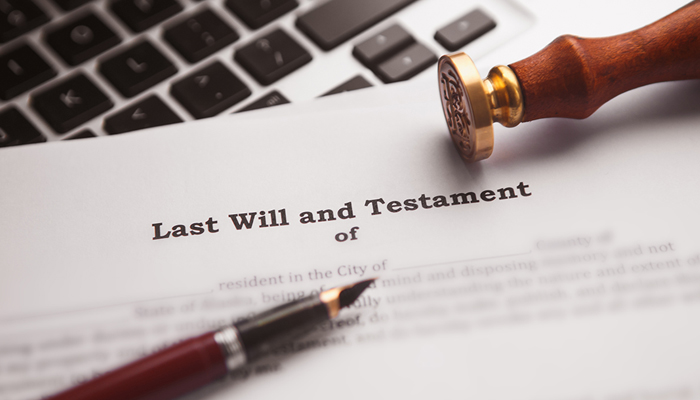How to sign your will if you cannot read or write
12 December 2022
We would like to acknowledge the contribution of Sidney Landis in the preparation of this article.
Often when acting on wills matters, the primary focus is ensuring the testator has capacity, understands and approves the contents of their will and there is no influence on the testator.
The physical signing of the will is usually the easy part – the testator signs the document while in the presence of two witnesses.
However, what happens if the testator is unable to read, write or physically meet with the witnesses?
The law: what makes a will valid?
In NSW, the Succession Act 2006 (NSW) (Succession Act) provides the framework for wills and, where no valid will exists, makes provision for a deceased person’s family members (and certain other persons).
The Succession Act provides that a will is not valid unless:
- it is in writing and signed by the testator, or by another person in the presence of, and at the direction of, the testator, and
- the signature is made or acknowledged by the testator in the presence of two or more witnesses present at the same time, and
- at least two of those witnesses attest and sign the will in the presence of the testator.
There are several other important factors (not covered in this article) that must also be taken into account, including that the knowledge and approval of a ‘free and capable testator’ is required.
Although not required under the Succession Act, wills are typically drafted to include an attestation clause which documents the circumstances surrounding the testator’s review and execution of the will.
In most wills, the attestation clause simply states that the testator signed the will while in the presence of two adult witnesses who were present at the same time and who attested the testator’s signature in the presence of the testator and of each other.
However, in cases where a testator is unable to read and/or write (and there are no concerns regarding capacity, undue influence, etc.), the inclusion and drafting of an attestation clause becomes crucial.
If the testator is unable to read and/or sign the will
If a testator cannot read the will, they may request that the will to be read out to them.
Similarly, if a testator cannot write and is unable to sign the will, they may direct another person to execute the will on their behalf.
In both circumstances, the attestation clause should be carefully drafted to reflect the circumstances. For example, where a testator cannot read, the attestation clause should be drafted to include statements confirming that the testator is unable to read and that the will was read out and explained to the testator. The attestation clause in wills for testators who are unable to write should include a statement confirming details of the person who signed the will on behalf of the testator.
Thinking ahead: evidence required by the Supreme Court
After the testator has died, the testator’s executor may be required to make an application to the Supreme Court of NSW for a grant of probate in order to deal with the testator’s estate.
In those circumstances, the Supreme Court Rules 1970 (NSW) provide that an application for probate in the estate of a testator who was unable to read and/or sign their will must be accompanied by an affidavit confirming the manner in which the will was executed, and which confirms the testator knew and approved its contents.
It is therefore good practice to have the witnesses and the persons who read out the will and signed the will on behalf of the testator sign an affidavit deposing such details as soon as possible after the execution of the will.
Remote (electronic) witnessing of wills
What can be done if the testator is unable to physically meet with two witnesses?
Although initially intended to be a temporary response to the COVID-19 pandemic, wills have now been included in the definition of ‘documents’ under the Electronic Transactions Act 2000 (NSW) (ET Act) as being documents that may be witnessed remotely by audio visual link.
To comply with the ET Act, a witness must observe the person sign the document in real time, attest the signature was witnessed by signing the document, be reasonably satisfied that the document signed by the signatory and the witness is the same document and endorse the document with a statement specifying the method used.
Although it is now a possibility, remote witnessing of wills should only be considered as a last resort. As the requirements of both the Succession Act and ET Act must be complied with, there are several legal and practical issues that can arise.
For instance, given the testator and witnesses (and additional persons tasked with reading out the will or signing the will on behalf of the testator) are not physically in each other’s presence, it can be difficult to be certain (and later prove – i.e. when the executor makes an application for probate) that the testator was not under any influence when making their will and that the will was correctly signed and witnessed as required under the relevant legislation (particularly if the testator requires the will be read out or signed on their behalf).
If remote witnessing is to be relied on, it may be advisable for the will to contain an attestation clause containing the endorsement required under the ET Act, although this is not necessary.
Accordingly, it is advisable to follow the ‘traditional’ approach of physically signing a will while in the presence of two witnesses to minimise issues regarding the validity of the testator’s will.


